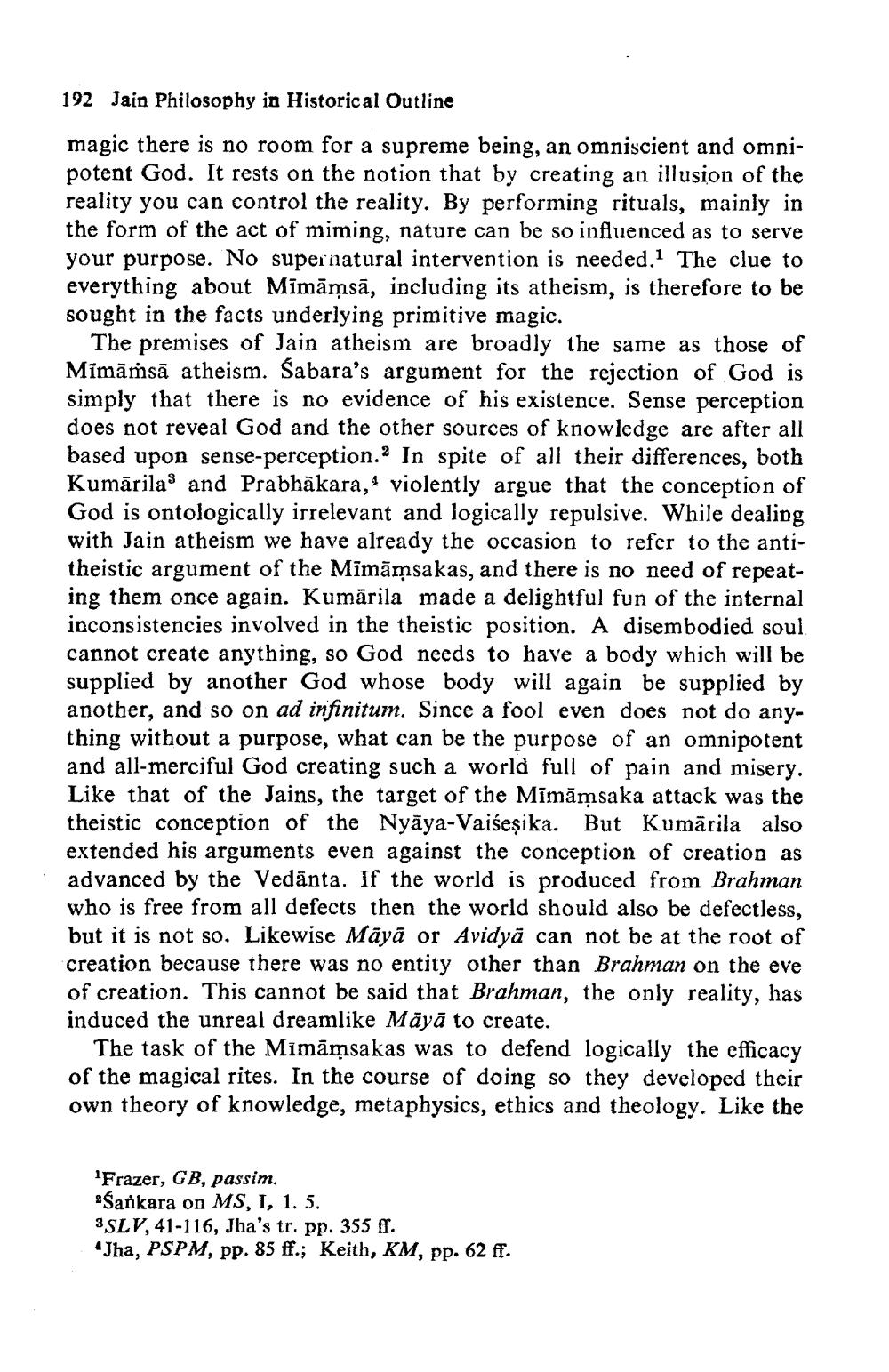________________
192 Jain Philosophy in Historical Outline
magic there is no room for a supreme being, an omniscient and omnipotent God. It rests on the notion that by creating an illusion of the reality you can control the reality. By performing rituals, mainly in the form of the act of miming, nature can be so influenced as to serve your purpose. No supernatural intervention is needed. The clue to everything about Mīmāmsā, including its atheism, is therefore to be sought in the facts underlying primitive magic.
The premises of Jain atheism are broadly the same as those of Mimāṁsā atheism. Sabara's argument for the rejection of God is simply that there is no evidence of his existence. Sense perception does not reveal God and the other sources of knowledge are after all based upon sense-perception. In spite of all their differences, both Kumārila3 and Prabhākara, 4 violently argue that the conception of God is ontologically irrelevant and logically repulsive. While dealing with Jain atheism we have already the occasion to refer to the antitheistic argument of the Mīmāmsakas, and there is no need of repeating them once again. Kumārila made a delightful fun of the internal inconsistencies involved in the theistic position. A disembodied soul cannot create anything, so God needs to have a body which will be supplied by another God whose body will again be supplied by another, and so on ad infinitum. Since a fool even does not do any
hing without a purpose, what can be the purpose of an omnipotent and all-merciful God creating such a world full of pain and misery. Like that of the Jains, the target of the Mimāmsaka attack was the theistic conception of the Nyāya-Vaišeşika. But Kumārila also extended his arguments even against the conception of creation as advanced by the Vedānta. If the world is produced from Brahman who is free from all defects then the world should also be defectless, but it is not so. Likewise Māyā or Avidyā can not be at the root of creation because there was no entity other than Brahman on the eve of creation. This cannot be said that Brahman, the only reality, has induced the unreal dreamlike Māyā to create.
The task of the Mimāņsakas was to defend logically the efficacy of the magical rites. In the course of doing so they developed their own theory of knowledge, metaphysics, ethics and theology. Like the
Frazer, GB, passim. 2Saokara on MS, I, 1. 5. 3SLV, 41-116, Jha's tr. pp. 355 ff. "Jha, PSPM, pp. 85 ff.; Keith, KM, pp. 62 ff.




